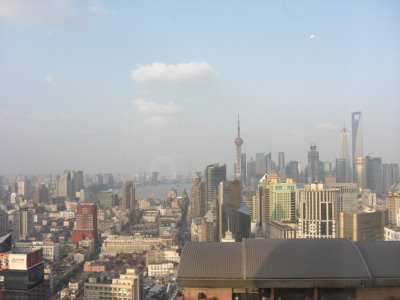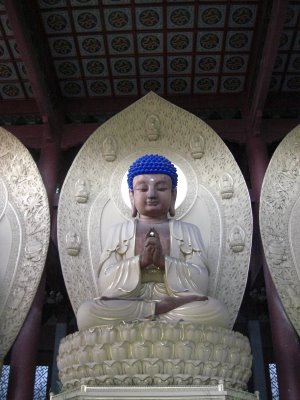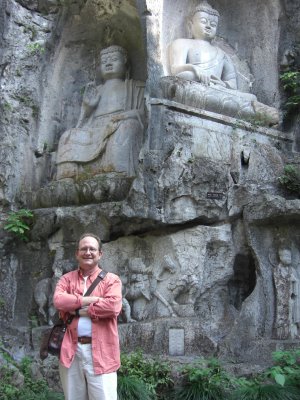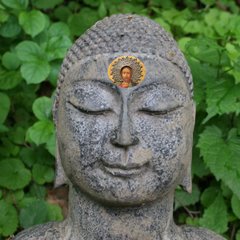
In
my efforts to take the time for some other areas of life, there are
less posts right now than at other times. In particular, I have learned
the value of pacing myself rather than slamming myself into every
activity I engage in with too much energy--and not enough patience.
So
I'm balancing my personal enterprises between this one, the execution
of some new pieces of artwork, my family responsibilities, the careful
attention to some respectable pieces of cooking, and a bit more
attention than usual for our three cats and the dog. Along with time to
just take in nature, as it is.
Today, rather than plumbing the cosmic depths of some specific esoteric idea, I just want to offer a personal soliloquy.
There
are moments in life when one begins to see the futility of attempting
to extend one's work beyond the parameters of one's own inner life and
one's immediate environs.
To be sure, we all have grandiose
impressions of ourselves, our potential, our abilities, the way we can
affect things and the way things can affect us. On rare occasions,
those impressions may contain a grain of truth. Abraham Lincoln, for
example, was aware of the fact that he was exceptional, and certain that
he had the ability to leave a mark that would be remembered by his
fellow man. Despite an early life of continual setbacks and failures,
he never stopped trying to improve himself, and when the moment came, he
was prepared to step into shoes so big that no one since his time has
been able to wear them.
Most of us aren't destined for larger
than life legacies. It is all we can do to step into the intimacy of
our own life itself, and make an honest effort to plumb the depths of
what we are within this moment, and within ourselves. That, of course,
is the aim of inner work--which is quite different than the outer work
that Abraham Lincoln so selflessly undertook on behalf of his fellow
men.
Both kinds of work are necessary, but only one kind feeds the inner life and the growth of the immortal soul.
In
some ways, each one of us has to make a choice between centers of
gravity as we go through life: either the internal, or the external.
There are some people who manage to walk the line between fame and inner
work successfully, but I think they are rare. For the rest of us, we
have to discern what is more important to us: to be important in the
external world, or to grow something different within ourselves that has
integrity and balance.
When I was young, I wanted to be a famous
artist. As I grew older, this became less and less important to me, and
by now, the center of gravity has shifted 180 degrees. I no longer want
to be famous, and I no longer want to be an artist. I may still be a
person who draws things and makes things, but I would rather go quietly
through life, without any celebration or recognition.
What is
important to me is to try and see how I am, and this is no easy thing.
It is much more difficult, for example, than being an artist. With
enough training, and enough inside knowledge of the tricks of the trade,
anyone can do a fine painting. Gurdjieff made a point of this often
enough with his contention that a man who observes carefully can do
anything externally. Much is made of that lore in the stories that get
passed around in the Gurdjieff work.
Inner work is much trickier.
It requires a balance that is only born through humility, and chemical
substances that don't get acquired reflexively. It also requires help
from a different level, help of a kind that we are unaware of and don't
even know how to ask for. Above all, I think it involves a change in
what the Buddhists call the ego-state.
Let us consider the word
"state" here as though it referred not to a condition, but a government.
The many "I's" within us are a corporate structure, an inner governing
body that continually squabbles, and is just as dysfunctional as the
American Congress.
Anyone who lives in America can see that our
system of government is a perfect reflection of Gurdjieff's "doctrine of
I's." Every few minutes, some new actor appears on the stage to
derail the process of consensus: the system is dominated by greed,
bribery, chicanery, influence, and subterfuge. Problems get studied
endlessly, but no solutions are ever offered. Every moment of decision
making seems to end up being nothing more than a decision to lurch to
the next moment of decision making.
We complain about the
government, the corporate structure, and the way that it ruthlessly
sucks everything into its vortex. People speak this way about almost
every government.
How many of us see that our inner lives are exactly the same?
Of
course, it has to be that way. Man cannot, in his external state,
create institutions that are any better than the ones he has within
himself. On the rare occasions when a man who has a superior inner
quality, such as Abraham Lincoln, comes along, he can change everything.
That man, however, is never the man that anyone expects him to be --
Lincoln, after all, was a dark horse, an outsider, and the
most unlikely of presidential candidates -- and he never does what people expect him to.
The
first thing that Lincoln did after he was elected, for example, was to
take all his rivals and form his cabinet from them. In other words, he
made his enemies his friends. This is really a kind of genius -- to take
all of these squabbling, bickering parts that don't work together,
introduce them to each other, and help them to see the benefit of mutual
support, instead of dissension.
For myself, if I don't try to
see the inner state, and its lack of unity, I cannot begin to change the
government. Ego is a government of I The Person; inner change is
movement towards a government of We The People. The inner government
must become one of a tripartite nature: powerful, intelligent,
compassionate. Each of those parts must balance each other and work
together.
Increasingly, the steps in this direction are, for me,
very personal. I have learned that one can know a great deal, and even
understand a great deal, and yet be unable to pass that on to other
people. The knowledge that one gets from another is often practically
useless; it may be filled with amazing facts, but facts are not reality.
They are just reflections of it. It is only
our own encounter with reality, and how deeply we drink it in, that creates a man's inner life, and his soul.
Neal
and I were walking the famous dog Isabel Saturday morning early, up the
road that leads from the salt marsh at the mouth of the Sparkill creek
towards Old Tappan, and I sensed it thus.
In the Gurdjieff work,
we have a massive form, composed of "the ideas." One can read "In
Search of the Miraculous," or other books from the ouevre, and encounter
thousands of important facts about the universe, the nature of work,
and so on. Nonetheless, even if one studies these ideas for years, and
masters certain aspects of understanding, none of that information
contains the world within it.
Walking up the road by the creek,
seeing the trees, the birds, the rocks, the shrubs and the flowers and
even the light that penetrates the air -- all of this transcends
everything one ever intellectually learns about the nature of the
cosmos. There is more contained within one real moment like this than
in every book that was ever written.
We are vessels into which the world flows. If we truly understood that --
understood
it, rather than just hearing the words or thinking about it --that
would be a tremendous help to our work. And that work is a personal
work, a loving work in which we learn how to love ourselves in the right
way. A work that creates a new form of self-valuation that consists of
questions about everything we do, everything we think, every emotion we
feel, every sensation that strikes us. Gentle questions, not harsh
judgments. Participation, not rejection.
A form that is about how it is right here, rather than what it might be like over there.
May your roots find water, and your leaves know sun.
 Sojurns
in China. From Hangzhou to Shanghai to Guangzhou--and now
Shenzhen--immersed in the day to day of business life, taken (as usual,
like all of us) by the trials and circumstances of the daily--ness of
this life,
Sojurns
in China. From Hangzhou to Shanghai to Guangzhou--and now
Shenzhen--immersed in the day to day of business life, taken (as usual,
like all of us) by the trials and circumstances of the daily--ness of
this life,









